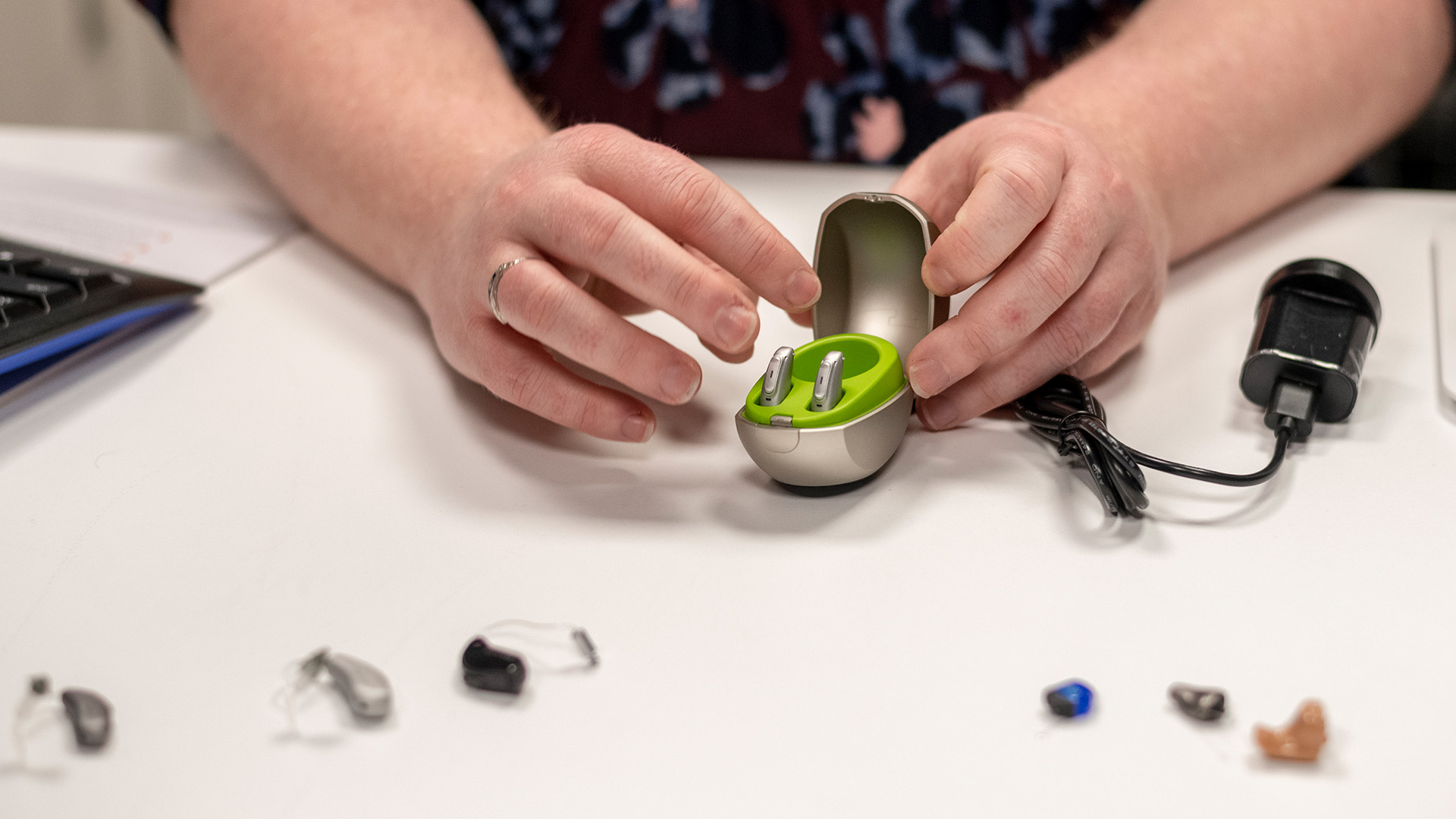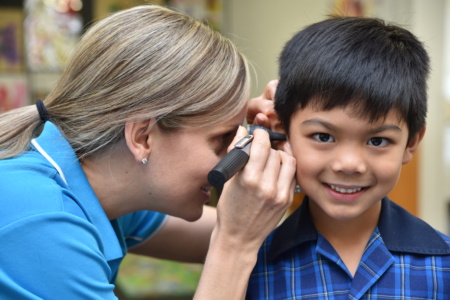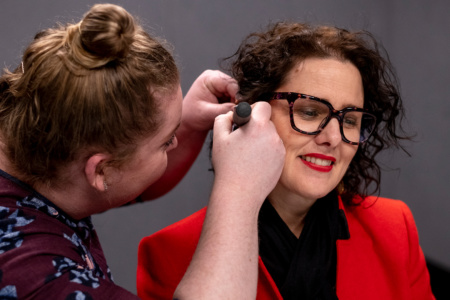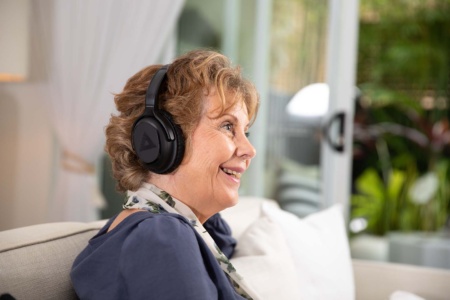It’s an outdated perception amongst many that hearing loss is an inevitable and untreatable part of the ageing process. Yet, the overwhelming majority of us think hearing is important to our overall quality of life.
Hearing aids are the most common technology option for many types of hearing losses. Understanding how they work can help make an informed decision about the benefits and whether they’re right for you.
Hearing aids are built to support your existing hearing by making sounds louder and more accessible. They help to relieve that everyday strain to hear. When hearing aids are worn consistently, they can help to actively stop the further deterioration of your hearing by keeping your brain’s auditory pathways stimulated.

What are the key benefits of hearing aids?
Improving hearing loss with hearing aids can help across many aspects of life. It can help to reduce social isolation, communicating and being connected with friends and family. That way, you can enjoy everything around you from watching TV without subtitles to listening to the radio or music and catching up with friends in noisier environments. There are a number of benefits of hearing aids including:
Improved ease of listening day to day
When you get two hearing aids your ability to hear and listen will become easier. This increases your sense of energy as listening ‘work’ reduces with amplification from hearing aids. Watching TV or having a conversation with your family or friends will be easier and you’ll hear things that you may not hear for some time such as the birds signing or people’s footsteps.
Improving relationships
With the introduction of hearing aids, people can hear their friends and family again and everyday conversations and tasks become much easier. Hearing loss often impacts not only the person with the hearing loss but their family and friends as well. Communication may be harder as you may need to ask people to repeat themselves regularly or always be face-to-face. This can lead to a tendency to get frustrated more easily.
Hear better in noisy situations
By wearing hearing aids, people will feel more ready to try new environments as they are no longer afraid to miss what is going on around them. Becoming isolated is a common impact for people with hearing loss. They tend to start to adapt their social life to avoid social gatherings or events where it is harder to hear because of the background noise. Hearing aid technology has come a long way and they can now adapt to different environments so if you're in a noisy cafe most of the interfering background noise can be reduced to make listening easier.
Localisation of sound
Being able to locate exactly where sounds are coming from is another one of the benefits of hearing aids. Hearing aids help restore the balance of sound, particularly when worn in both ears.
Lower risk of cognitive decline
Wearing hearing aids can have a positive impact in overall social wellbeing and quality of life. Hearing aids can also help in preventing or delaying dementia with research showing hearing loss is one of the 12 risk factors that could lead to dementia.
A reduction in Tinnitus symptoms
Whilst there are many reasons someone can experience tinnitus, it often goes hand in hand with hearing loss. Tinnitus is often associated with high frequency hearing loss and wearing a hearing aid or using a device that masks tinnitus can sometimes provide some relief. Your audiologist can provide you with advice and strategies to manage your symptoms and refer you to support services if appropriate.

The link between hearing loss and mental health decline
For many people, their hearing can change quite gradually over time without noticing (typically with age related hearing loss), however it can be harder to follow a conversation in a noisy environment or they may need to watch TV with the subtitles on. Research has also shown that by not treating a hearing loss with technology such as hearing aids, the risk of increased memory loss and depression rises. This is because hearing loss can lead to things like withdrawing from social situations because it’s easier than asking friends or family to repeat themselves constantly.
Are there any limitations to wearing hearing aids?
There are plenty of benefits of wearing hearing aids however a new set can come with an adjustment period for the hearing aid user. A few limitations, although likely temporary, to be mindful of include:
- Hearing aids don't give you normal hearing again like putting on a pair of glasses, they simply amplify sounds to make them louder
- It can take some time to get used to wearing hearing aids, this is completely normal
- You might feel overwhelmed by all the sounds you can hear initially - your brain has gotten used to living with hearing loss and needs to differentiate the noises again
- Although temporary, it's common to experience irritation around your ears when you first get your hearing aid
Risks involved with untreated hearing loss
People who are fitted with hearing aids early can adapt more easily to their hearing device and have better outcomes overall.
There are risks associated with untreated hearing loss, even if it is a mild or moderate hearing loss, including:
- The longer our brain goes without sound, the ability to hear speech clearly also decreases.
- Social isolation and not being connected to friends and family
- Memory loss and depression
- Hearing loss has also been linked to dementia
Main components of a digital hearing aid
Microphone: the microphone picks up sounds or speech from the surrounding environment, and converts these sound waves into electrical signals, which are then sent to the amplifier.
Amplifier: a computer chip dedicated to increasing the power or volume of the electrical signals received, which in turn improves speech and sound quality; the amplifier can also filter speech from background noise to improve understanding. These improved signals are converted back to electrical impulses and sent onto the receiver/speaker component. The more severe the hearing loss, the more amplification is required.

Receiver/speaker: depending on the style of hearing aid, this may sit internally or externally on the aid; the receiver/speaker converts the amplified electrical signals back into sounds, and these are sent directly into the ear where the natural hearing process through the inner ear and brain takes over.
Battery: the power source; this may be a replaceable battery, or a built-in lithium-ion rechargeable battery depending on the style of hearing aid.
Hearing can change gradually over time, if you’re noticing your hearing is getting worse or you’re finding it harder to hear in noisy situations, book a hearing test near you.
We have a number of hearing clinics in Queensland:
- Brisbane
- Gold Coast
- Sunshine Coast
- Townsville
- Telehealth









